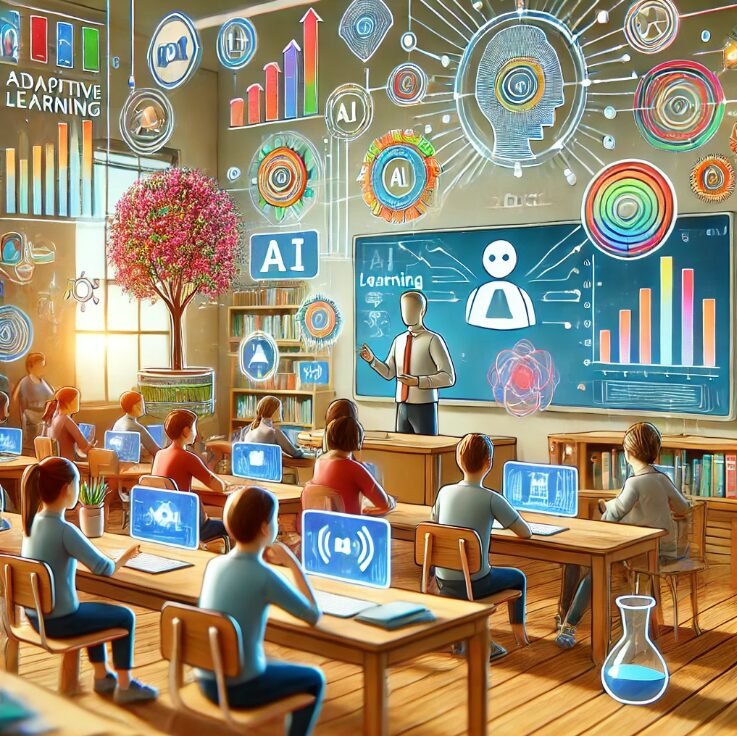Artificial Intelligence (AI) is revolutionizing various sectors, and education is no exception. One of the most significant benefits of AI in education is its ability to enhance student engagement and improve learning outcomes. By providing personalized learning experiences, offering real-time feedback, and making learning more interactive and accessible, AI is helping educators meet the diverse needs of students more effectively than ever before. This blog explores how AI-powered learning is transforming education and the key ways it is enhancing student engagement and outcomes.
Powerful Strategies for Creating AI-Enhanced Assessment Rubrics in Modern Education
Personalized Learning Paths
One of the primary advantages of AI in education is its ability to create personalized learning paths for students. Traditional teaching methods often follow a one-size-fits-all approach, which can leave some students struggling while others are not sufficiently challenged. AI changes this by analyzing each student’s learning style, pace, strengths, and weaknesses to tailor educational content accordingly.
Adaptive learning platforms, powered by AI, can adjust the difficulty of tasks, suggest additional resources, and modify the teaching approach based on a student’s performance in real-time. This level of personalization ensures that students are neither bored nor overwhelmed, keeping them engaged and motivated to learn.
Interactive and Engaging Content
AI has the potential to make learning more interactive and engaging through the use of intelligent tutoring systems, gamification, and interactive simulations. These AI-driven tools provide instant feedback, encourage active participation, and make learning feel more like a game than a chore.
For example, AI-powered educational games can adapt to the learner’s level, making them more challenging as the student progresses. This gamified approach not only keeps students engaged but also helps them develop problem-solving skills and critical thinking abilities in a fun and interactive way.
Furthermore, intelligent tutoring systems simulate one-on-one tutoring by providing personalized guidance, answering questions, and offering hints when students are stuck. This immediate, tailored support can significantly enhance student engagement and improve their overall learning experience.
Real-Time Feedback and Assessment
AI-driven tools provide real-time feedback and assessment, which is crucial for student learning and engagement. Traditional assessments often involve delays between submission and feedback, which can lead to missed learning opportunities. AI can bridge this gap by offering instant feedback on quizzes, assignments, and even written work.
This immediate feedback allows students to understand their mistakes and correct them on the spot, leading to a deeper understanding of the material. Additionally, AI can track student progress over time, identifying patterns and areas where students may need extra help. This continuous assessment ensures that students remain engaged and on track, ultimately improving their learning outcomes.
Enhanced Accessibility and Inclusion
AI-powered learning also plays a crucial role in making education more accessible and inclusive. For students with disabilities or those who face language barriers, AI offers tools that can adapt to their specific needs. For instance, AI-driven speech-to-text and text-to-speech applications can assist students with visual or hearing impairments, ensuring they have equal access to educational content.
Moreover, AI can translate educational materials into multiple languages in real-time, breaking down linguistic barriers and making learning more inclusive for students from diverse backgrounds. By catering to the needs of all students, AI enhances engagement and ensures that everyone has the opportunity to succeed.
The Future of AI-Powered Learning
As AI technology continues to advance, its impact on student engagement and learning outcomes is expected to grow. Future developments may include more sophisticated adaptive learning systems, AI-driven virtual reality experiences, and even AI mentors that can guide students through their educational journey.
However, it is essential to approach the integration of AI in education thoughtfully. While AI offers many benefits, it should complement, not replace, the human elements of teaching. Educators will continue to play a crucial role in providing the guidance, empathy, and critical thinking skills that AI cannot replicate.
Conclusion
AI-powered learning is transforming education by enhancing student engagement and improving learning outcomes. Through personalized learning paths, interactive content, real-time feedback, and greater accessibility, AI is helping students achieve their full potential. As technology continues to evolve, the role of AI in education will only become more significant, offering new opportunities to create engaging, inclusive, and effective learning environments.
Visit The Case HQ for 95+ courses
Read More:
Innovative Practices: How Case Studies Influence Product Design
Case Studies in Economics: A Closer Look
Utilizing Case Studies for Effective Disaster Management
AI-Powered Learning: Enhancing Student Engagement and Outcomes
Ethical Considerations of AI in Education: Balancing Innovation and Privacy
Leveraging AI for Student Success: Tools and Techniques
The Role of Artificial Intelligence in Personalized Education
How AI is Transforming the Classroom: The Future of Learning
Why Research Publications are Critical in Understanding Global Health Trends
Exploring the Real-World Impact of Case Studies in Urban Planning
Breaking Down a Case Study: An Interactive Walkthrough
How to Cite Case Studies and Research Publications in Your Work
The Intersection of Ethics and Case Studies in Research



Responses